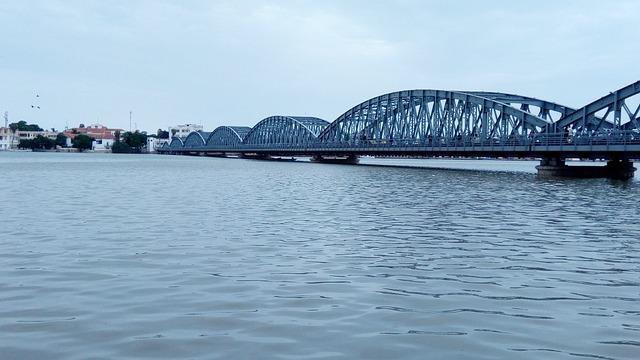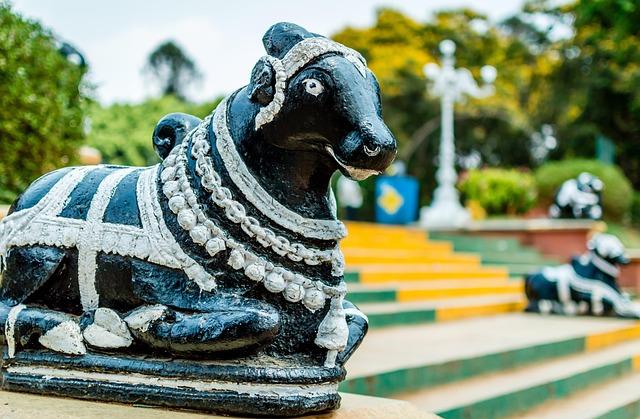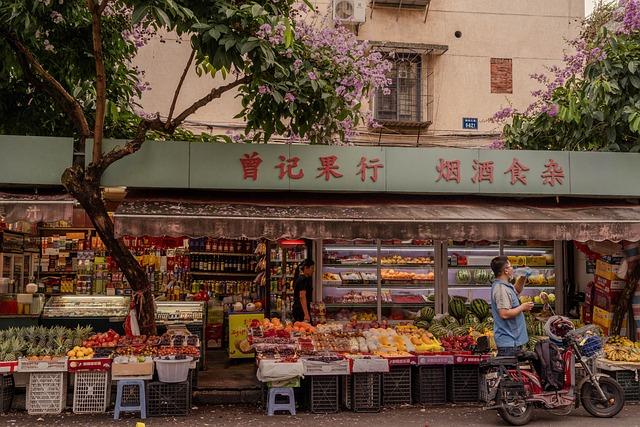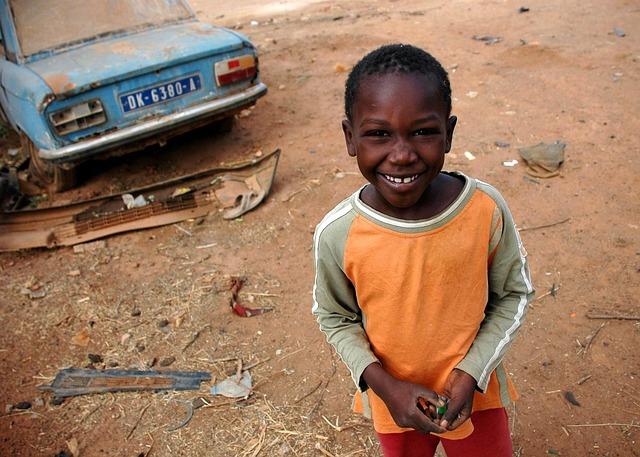Title: Senegal and Mauritania Achieve First Gas Production at GTA: A New Dawn for West african energy Security
In a meaningful milestone for the energy sector in West Africa, Senegal and Mauritania have successfully achieved thier first gas production at the Greater Tortue Ahmeyim (GTA) project, marking a pivotal moment in the region’s quest for energy independence and security. This landmark advancement heralds a new era, not only for the two nations but for the broader African energy landscape, as it positions the region as a competitive player in the global natural gas market. With the African Energy Chamber emphasizing the importance of this achievement, this article explores the implications of the GTA project for energy security, economic growth, and regional cooperation, as well as the potential it unlocks for future investments in West African gas production. As the continent continues too navigate the complexities of energy transition and sustainability, the successful commencement of gas production at GTA stands as a beacon of hope and progress for the entire region.
Senegal and Mauritania Mark a Milestone with First Gas Production at GTA

The commencement of gas production at the Greater Tortue Ahmeyim (GTA) project is a significant milestone for both Senegal and Mauritania, ushering in a new era of energy security for the region. This monumental achievement not only marks the beginning of commercial gas sales but also reinforces West Africa’s role in the global energy landscape. With estimated reserves exceeding 15 trillion cubic feet, the GTA project is poised to transform the economic outlook of both nations, facilitating job creation and infrastructure development while attracting foreign investment.
The successful launch of this project is the culmination of years of effort and international collaboration. Key stakeholders, including local governments and global energy companies, have worked hand-in-hand to realize this vision. The anticipated benefits encompass:
- Increased energy independence for Senegal and Mauritania
- Enhanced regional cooperation and energy integration
- Opportunities for local businesses in the supply chain
- Promotion of environmentally enduring practices in gas production
Implications for Regional Energy Security in West Africa

The successful extraction of gas from the Grand Tortue ahmeyim (GTA) field marks a pivotal milestone for West Africa, with profound implications for regional energy security. As Senegal and Mauritania embark on this novel venture, the prospects for energy independence within the region are significantly enhanced. The strategic cooperation between the two nations not only accelerates the development of gas infrastructure but also positions West Africa as a burgeoning energy hub. Key benefits include:
- Increased Energy Supply: With reliable gas production, local economies can reduce dependency on imported fossil fuels.
- Economic Diversification: The newfound gas output will stimulate industrial growth, creating job opportunities and supporting ancillary sectors.
- Regional Integration: Enhanced collaboration among West African countries can lead to joint energy projects,fostering a unified energy market.
Furthermore, the establishment of robust gas production enhances geopolitical stability in the region. It allows West Africa to not only secure energy for domestic consumption but also establish export routes to Europe and other markets. This development will help mitigate potential energy crises and bolster energy prices, benefiting both producing nations and their neighbors. A look at the anticipated benefits includes:
| Benefits | Description |
|---|---|
| Energy Security | Reduced vulnerability to global fuel price fluctuations. |
| Investment Attraction | Increased foreign investment in energy projects and infrastructure. |
| Environmental Benefits | transition from coal and oil to cleaner gas resources, reducing emissions. |
Harnessing Natural Resources: Economic Opportunities for Senegal and Mauritania

The recent achievement of first gas production at the Greater Tortue Ahmeyim (GTA) project marks a pivotal development for West Africa, especially for Senegal and Mauritania. This project not only underscores the region’s potential to become a significant player in the global energy market but also presents numerous economic opportunities. By fully leveraging their natural gas resources,both countries can address key economic challenges while enhancing energy security.The benefits of this undertaking include:
- Job Creation: The development of gas infrastructure and related industries can create thousands of jobs, reducing unemployment and fostering local economies.
- Foreign Investment: The allure of Senegal and mauritania’s gas reserves can attract international investors,leading to enhanced technological transfer and capacity building.
- Energy Independence: Increased production of natural gas allows both nations to shift away from imported energy sources, ensuring stability and predictability in energy supply.
- Export Opportunities: Access to global markets can generate substantial export revenues, boosting national economies and funding crucial public services.
Both governments are now tasked with creating a robust regulatory framework that supports sustainable development while ensuring that the local communities benefit equitably from these resources. The potential revenue from gas production can be reinvested in sectors such as education, healthcare, and infrastructure, thereby improving the standard of living for citizens. Moreover, investment in renewable energy as a complementary resource ensures the long-term viability of the energy landscape in Senegal and Mauritania. To visualize the financial impact,consider the following table:
| opportunity | Potential Impact |
|---|---|
| Job Creation | Thousands of direct and indirect jobs |
| Revenue generation | Increased national GDP |
| Energy Security | Reduced dependency on imports |
| Infrastructure Development | Improved access to essential services |
Strategies for Sustainable Development in Gas Production

The recent commencement of gas production at the Greater Tortue Ahmeyim (GTA) project signifies a significant milestone for Senegal and Mauritania. As the region embarks on this new chapter of energy security, it is indeed imperative to adopt strategies that ensure sustainable development in gas production. Stakeholder engagement is crucial, involving local communities in decision-making processes to foster social license and promote equitable sharing of benefits.Additionally, environmental monitoring should be prioritized to mitigate potential impacts on marine and terrestrial ecosystems, ensuring that production activities align with global sustainability goals.
Investment in innovative technologies plays a pivotal role in optimizing resource extraction while minimizing environmental footprints. The integration of renewable energy solutions, such as solar and wind, into gas production operations can enhance overall energy efficiency, reduce greenhouse gas emissions, and contribute to a more resilient energy landscape. Furthermore, establishing transparent regulatory frameworks will facilitate responsible governance, encouraging local and foreign investments while ensuring adherence to safety and sustainability standards. Through these strategies, the countries can harness their gas resources effectively and sustainably, paving the way for long-term economic development.
The Role of International Partnerships in West African Energy Infrastructure

The successful gas production at the Greater Tortue Ahmeyim (GTA) project marks a pivotal moment for West Africa, driven largely by strategic international partnerships. Through collaborations with global energy firms, Senegal and Mauritania have established a framework that not only enhances their energy security but also positions the region as a significant player in the global gas market. These alliances facilitate technology transfer, investment, and expertise that are crucial for developing large-scale energy infrastructure. Over the last few years, partnerships with companies such as BP and Kosmos Energy have been instrumental in advancing exploration and production initiatives, enabling the region to tap into its vast offshore gas reserves.
The importance of these partnerships extends beyond mere investment; they foster an habitat of shared responsibility and collaborative development within the energy sector.By aligning international interests with local capabilities, West African nations can build a resilient energy infrastructure that addresses both domestic needs and export potentials. This collaboration can be highlighted through several key factors:
- Investment Mobilization: International partnerships attract significant foreign direct investment.
- Technology Sharing: Global expertise helps local companies gain knowledge and improve operational efficiencies.
- Market Access: Enhanced regional supply chains create opportunities for export,increasing competitiveness.
- job Creation: Initiatives lead to local hiring and skills training programs,empowering communities.
Future Prospects for Expansion in Gas Markets and Investments in Africa

The recent achievement of gas production at the Grand Tortue Ahmeyim (GTA) project stands as a pivotal moment for energy dynamics across West Africa. This development not only enhances regional energy security but also opens avenues for significant investments in gas infrastructure, production, and distribution. As Senegal and Mauritania set the stage for a robust gas market, other countries in the region are likely to draw inspiration and explore similar opportunities. An influx of foreign investment is anticipated, driven by the increasing global demand for cleaner energy sources. This moment signals a shift towards sustainable energy practices, wich promises to boost economic growth and foster collaboration among West African nations.
Looking forward, the expansion of gas markets in Africa could reshape the continent’s energy landscape profoundly. Key factors influencing this growth include:
- Technological advancements that streamline extraction and production techniques, lowering costs.
- Strategic partnerships with multinational companies to facilitate access to funding and expertise.
- Government initiatives aimed at regulatory reforms that encourage investment and enhance operational efficiency.
- Increased infrastructure development, such as pipelines and processing facilities, to support market growth.
To visualize the potential for growth in gas markets, consider this table illustrating projected investment opportunities in key sectors:
| Sector | Investment Potential (USD Billion) | Growth Rate (%) |
|---|---|---|
| Gas Exploration | 10 | 15 |
| Infrastructure Development | 8 | 12 |
| Processing Facilities | 5 | 10 |
| Renewable Gas Integration | 3 | 20 |
This data underscores the extensive potential for sustainable growth in Africa’s gas sector, making it a focal point for future investments and developments.
Wrapping Up
the successful achievement of first gas at the Greater Tortue Ahmeyim (GTA) project marks a pivotal moment for both Senegal and Mauritania, heralding a new era of energy security and economic promise for West Africa. This landmark development not only underscores the region’s growing importance in the global energy landscape but also showcases the potential for enhanced regional cooperation in harnessing natural resources. As both nations continue to leverage their gas production capabilities,the implications could be profound,providing a much-needed catalyst for sustainable development,job creation,and energy independence.Stakeholders within and beyond the african continent will be closely monitoring the evolution of this project and its contributions to energy supply chains, underscoring the vital role that African nations can play in meeting the world’s evolving energy needs. The strides made at GTA serve as a reminder of the region’s potential, and as Senegal and Mauritania forge ahead, they may well set a precedent for other countries within Africa to follow.







